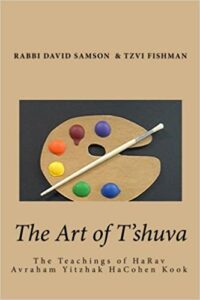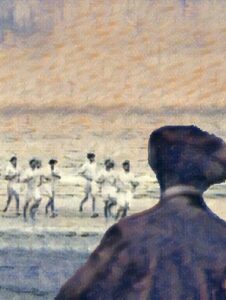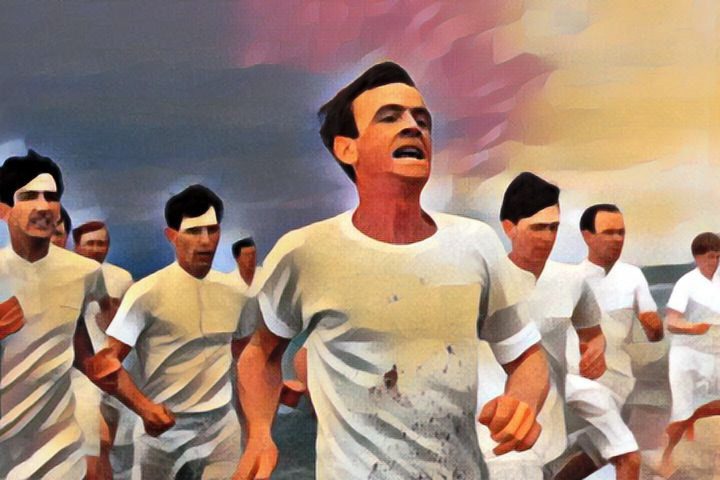Rabbi Kook on T’shuva
by Rabbi David Samson and Tzvi Fishman (abridged from the book “The Art of T’shuva)

Rabbi Kook writes that an initial stage of t’shuva is what he terms “physical t’shuva” – getting one’s body in shape.
Rabbi Kook was condemned by certain ultra-Orthodox groups who belonged to the Old Settlement in Jerusalem when he extolled the virtues of exercise and a healthy physique. In his classic work, “Orot,” Rabbi Kook writes that the exercise of young Jews in Eretz Yisrael, in order to strengthen their bodies to become mighty sons to the nation, adds overall strength to the Jewish People, which enables the righteous to bring more Divine light into the world.

“When young people engage in sport to strengthen their physical capabilities and morale for the sake of increasing the overall strength of the nation, this holy endeavor raises the Divine Presence ever higher, just as it is exalted by the songs and praises sung by David, King of Israel, in the Book of Psalms.”
Upon hearing this comparison between sport and the Psalms of King David, the ultra-Orthodox community in Jerusalem vehemently attacked Rabbi Kook. They were afraid that any praise of the secular Zionists could lead to a crumbling of barriers between the holy and the profane. In addition to that serious concern, their negative attitude toward physical strength can be seen as having evolved from the miserable state of the Jew in the ghetto. In the Galut, Diaspora Jews were helpless against the oppression of the gentiles. A philosophy developed whereby a Jew was supposed to look solely to Hashem for salvation and rescue. The Jews were so outnumbered, how could they fight? Physical prowess was meaningless, they claimed. A Jew had to rely solely on Torah and prayer. While that might have been true in the Diaspora, with the return of the Jewish people to Israel, physical strength became a necessity if the Jews were to successfully settle the Land and defend Jewish settlements against hostile neighbors.
In the generation of national revival, as the Jewish Nation returns to its homeland, a new type of religious Jew must appear to take up the challenge. Rabbi Kook writes in Orot:
“Our physical demand is great. We need a healthy body. Through our intense preoccupation with spirituality, we forgot the holiness of the body. We neglected bodily health and strength. We forgot that we have holy flesh, no less than our holy spirit. We abandoned practical life, and negated our physical senses, and that which is connected to the tangible physical reality, out of a fallen fear, due to a lack of faith in the holiness of the Land.”
In fact, it is the revival of the nation’s physical strength which brings about a renewed spiritual strengthening.
“All of our t’shuva will only succeed if it will be, along with its spiritual splendor, also a physical t’shuva which produces healthy blood, healthy flesh, firm, mighty bodies, and a flaming spirit spreading over powerful muscles. Through the power of the sanctified flesh, the weakened soul will shine forth like the dead’s physical resurrection.”
Jews, religious or not religious, are not to be “nebechs” or weaklings whom everyone can push around. We need not be ashamed of our bodies. We must be strong to learn Gemara and strong to build the Land.
In other words, if Jews do not start planting fruit trees in Israel, then the harvest of fruit, the surest sign of Redemption, is not going to happen. Thus Rabbi Kook understood that the physical resettlement of Zion, even by secular Jews, was a great act of t’shuva, of returning the nation to its roots.
Thus our first step on the journey of t’shuva is physical health, both for the individual and for the Nation.






